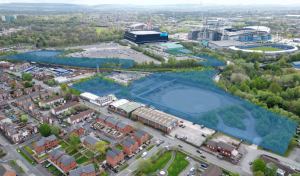Commons probe launched into graphene exploitation

A PARLIAMENTARY inquiry is to be launched into the exploitation of the substance graphene in the UK.
This follows the revelation that a lightbulb developed at Manchester’s £61m National Graphene Institute is to be made in the Far East.
The lightbulb was developed at NGI at Manchester University following the isolation of the substance – 200 times stronger than steel – by two scientists at the academic institution in 2004.
Now, following disquiet by academics reported by The Sunday Times, the parliamentary science and technology committee conduct an inquiry into how opportunities presented by the discovery of the substance is or is not benefiting UK industry.
The newspaper’s investigation published last week highlighted concern among academics at the NGI over whether there were sufficient safeguards to protect their confidential research and whether the UK was reaping enough of the benefits of the work.
Hailed in a blaze of publicity as a coup when it was unveiled a year ago, the university said the development of the lightbulb showed how it was leading the way “not only in world-class graphene research, but in commercialisation as well”.
But it has now come to light that Taiwanese businessman Chung-Ping Lai controlled patents for the lightbulb technology invented by his company, Graphene Lighting. The university has a 3% shareholding in the company and a 17% stake in its parent company.
Lai has said he looked at manufacturing in Manchester, but it had not proved financially viable. He expects to outsource manufacturing to Asia and is in talks with plants in China and Taiwan, The Sunday Times said.
Manchester University has said the lightbulb was the result of a NGI research partnership, but was not a university product.
Meanwhile, Graham Stringer, Labour MP for Manchester constituency Blackley and Broughton, has expressed concern about whether the benefits of graphene products would “accrue to Manchester”.








